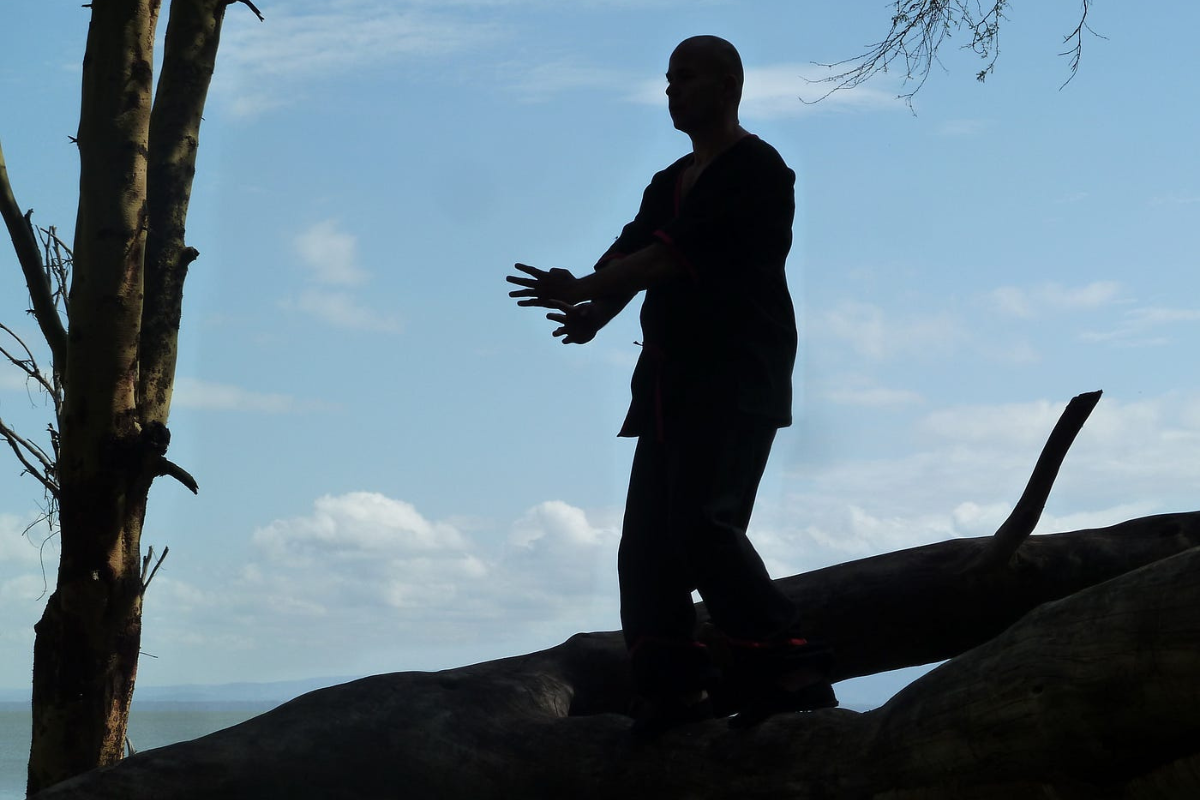
How Martial Arts Training Enhances Emotional Awareness and Resilience
![]() Adam Slawson
Adam Slawson
![]() October 15, 2024
October 15, 2024
Emotional awareness involves recognizing and understanding one's feelings, which enables individuals to respond effectively to various situations. Resilience refers to the capacity to recover from stress and adversity. Together, these elements are vital for mental well-being, influencing personal relationships, professional success, and overall health. Emotional resilience coaching helps individuals develop strategies to manage their emotions, fostering growth through life's challenges. Martial arts training uniquely contributes to this development by combining physical activity with mental discipline. As practitioners engage in martial arts, they become more aware of their emotional responses, equipping them with tools to handle feelings outside the dojo. Martial arts have a rich tradition focused on personal growth. This holistic approach emphasizes the development of mind, body, and spirit, teaching qualities like perseverance and respect. As practitioners face physical and mental challenges during training, they cultivate resilience and mental toughness. Training routines encourage individuals to push past their limits, reinforcing a growth mindset. The skills developed in martial arts foster improved emotional regulation, allowing practitioners to approach stressors calmly. The connection between physical and emotional discipline enhances the ability to face life's challenges. Mindfulness is a central tenet of martial arts, encouraging practitioners to engage fully in their training. This heightened awareness translates to improved emotional understanding and regulation in daily life. Respect and empathy learned in martial arts foster deeper connections with others, enhancing communication skills. Goal setting within martial arts builds self-efficacy. Achieving milestones boosts confidence and reinforces the belief that challenges can be overcome. Practitioners learn that perseverance leads to growth, further solidifying their emotional resilience. Breathing techniques play a crucial role in martial arts, helping individuals manage stress and anxiety. Controlled breathing promotes relaxation, allowing practitioners to approach challenges with clarity. Meditation and visualization techniques enhance self-confidence and emotional regulation, equipping individuals to handle real-life situations with ease. Regular physical conditioning in martial arts contributes to overall well-being. The endorphins released during exercise improve mood and increase energy levels. As practitioners become stronger physically, they often experience a boost in self-esteem, enhancing their capacity to cope with emotional challenges. Martial arts training can lead to profound personal transformation. Overcoming obstacles in training fosters a growth mindset, encouraging individuals to view setbacks as learning opportunities. This journey of self-discovery enhances emotional resilience and helps individuals tackle life's challenges with determination. The supportive community within martial arts further bolsters personal growth. Practitioners share experiences and challenges, creating a sense of belonging that enhances emotional resilience. This camaraderie provides strength during tough times, reminding individuals they are not alone in their struggles. To apply martial arts principles to everyday life, individuals can incorporate mindfulness into daily routines, such as taking deep breaths during stressful moments. Setting healthy boundaries learned through martial arts helps prevent overwhelm and promotes personal empowerment. Practicing self-discipline nurtures habits that enhance emotional resilience. Regular training commitments translate into perseverance in other areas of life, reinforcing the idea that consistent effort leads to growth. Additionally, embracing respect and empathy creates healthier relationships, encouraging open dialogue and understanding.Understanding Emotional Awareness and Resilience
The Intersection of Martial Arts and Emotional Development
Core Principles of Martial Arts Training That Foster Emotional Growth
Techniques Used in Martial Arts for Emotional Resilience
Personal Transformation Through Martial Arts
Integrating Martial Arts Principles into Everyday Life

Recent Articles
How Authenticity Coaching Helps Men Overcome Anxiety and Overthinking
Modern life often puts immense...
![]() Oct 24, 2024
Oct 24, 2024
Balancing Work and Relationships: Practical Tips for Stress Management
Understanding the Importance o...
![]() Oct 23, 2024
Oct 23, 2024
Reclaim Your Confidence: Breaking Free from Societal Expectations
Understanding Societal Expecta...
![]() Oct 22, 2024
Oct 22, 2024
Transforming Stress into Emotional Growth: A Coaching Perspective
Understanding Stress in Leader...
![]() Oct 21, 2024
Oct 21, 2024
Why Many Men Struggle with Emotional Disconnection and How to Fix It
Understanding Emotional Discon...
![]() Oct 20, 2024
Oct 20, 2024
The Impact of Early Conditioning on Emotional Health and Relationships
Understanding Early Conditioni...
![]() Oct 19, 2024
Oct 19, 2024
Addressing Burnout: Strategies for Emotional Recovery and Growth
Understanding BurnoutBurnout i...
![]() Oct 18, 2024
Oct 18, 2024
Managing Perfectionism: Steps to Reduce Anxiety and Embrace Fulfillment
Understanding PerfectionismPer...
![]() Oct 17, 2024
Oct 17, 2024
The Role of Shadow Work in Overcoming Limiting Beliefs
Understanding Limiting Beliefs...
![]() Oct 16, 2024
Oct 16, 2024
Discovering Your True Self: A Journey Toward Authenticity
Understanding AuthenticityAuth...
![]() Oct 14, 2024
Oct 14, 2024
How to Sustain Personal Growth and Authenticity in a Fast-Paced World
Understanding Personal Growth ...
![]() Oct 13, 2024
Oct 13, 2024
The Importance of Emotional Resilience in Personal and Professional Life
Understanding Emotional Resili...
![]() Oct 12, 2024
Oct 12, 2024
Building Meaningful Connections: How to Foster Deep Emotional Bonds
Understanding the Importance o...
![]() Oct 11, 2024
Oct 11, 2024
Creating a Safe Space for Emotional Healing: The Value of Coaching
Understanding Emotional Healin...
![]() Oct 10, 2024
Oct 10, 2024
